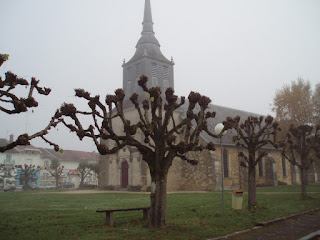Convois Autos.,
S.S.U. 647,
Par B.C.M.,
France.
Wednesday – Oct.30, 1918
Dear Sis:-
 |
| Marion Willard Everett |
I’ve got a hunch tonight and am going to follow it out.
Do you recall a certain day a number of years ago that found you, Bick, Tib and myself afloat on the lake adjourning Lake Kaumbauniabikitchieagamock (or was it Long Lake?) in a canoe – and we stopped on a certain small picturesque little island, either on our way to or from Ely, and cooked a meal amid the rocks? Do you remember what we ate beside bacon? Wasn’t it beans and cocoa? Well tonight I carried my carcass and mess-kit to the kitchen to fall in the mess line. We were served bacon, beans and cocoa (plus hot biscuits, jam and butter). I escorted this layout carefully to the dug-out in which several of us sleep and keep warm and started to eat it beside our good hot Boche stove. One mouth full of beans a sip of cocoa brought the picture of which I am asking you as vividly as if it were yesterday to my mind. What could it have been if not the food? The more I think about it, however, I believe it was McMillan instead of Tib who made up the four. Hadn’t we just been in to get Bick or were we taking Mac into Ely when he left us?
Many, many times things come up in this make-shift life of ours over here which remind me of past experiences. We always have bacon on hand over here and hardly a day passes but we get it in some form or other but, of course, nowhere near as good as that we used to fry over the open fire. We also have cocoa when we are fortunate enough to run on to a kind hearted Red Cross man to furnish it and the milk to go with it. The coffee we get is terrible partly because our cooks don’t know how to make it but mostly because the only good water we get is chlorinated and give the coffee a taste which I can’t stand. These are about the only articles in the food line which correspond to those we used to make ourselves. Our cooks can and do make delicious flap-jacks whenever we can get milk but they don’t taste like they did in the good old days when eggs and Vermont maple syrup were plentiful. A new delicacy has recently crept into style in our outfit – a piece of bread fried in bacon grease with a bit of sugar sprinkled on top to be eaten while hot. It tastes pretty good for a change. Fresh meat is as scarce as black and white whiskey over here.
Another thing which brought back old times was the pictures which mother sent of your Milnor[, North Dakota] trip. How natural you all look. I believe Dad and Mother are getting younger every day. Dad looks like a boy in his nice, new auto cap and Mother like a gay, young butterfly – the kind that makes the heart flutter, as Tib would say. And Connie – why doesn’t some big, good-looking, prosperous young business man have sense enough to grab her? Maybe she doesn’t want to bother with one but the more I think about it the more my respect for the male sex diminishes. As for you, my dear sister, I must confess that, in spite of the fact that I have Dot to take your place, I grow more and more jealous of Bill – “and there you have it,” in words of John Barty, champion prizefighter of England (Jeffrey Farnol’s Amateur Gentleman.”) Lest I wax sentimental I’m going to change the subject.
Poor old Bill! He certainly isn’t satisfied in Marseilles, one of the most beautiful cities in France, is he? I don’t know as I blame him much at that though I would gladly change places with him for awhile. One feels like an awful slacker to be back so far when such great doings are in process but rats! What difference does it make in the long run? Bill will be able to tell as many gruesome tales as any of us when it’s all over and that’s the really big thing of the war (?). If Bill’s imagination falls short I can steer him on to a couple of good pals of mine who can give him enough awfulness in 5 minutes to cover pages and pages in book form. This war is sure great on developing imaginative powers. I feel sorry for you all when we are cut loose upon civilization once more.
Isn’t it a grand and glorious feeling to read the papers these days? Marshal Foch is right on the job. Sis, though I’m not as optimistic as some, I believe we’re going to be home by a year from Xmas. My heart almost explodes every time I think of it. Won’t we have some good times?
Now good-night. There’s something doing outside and I’ve got to go out and see what it’s all about.
Lovingly,
Grant.
P.S.:- Fritz is trying for our roads back here tonight but he’s a poor shot.
GRW
P.S.:- Tell mother I was a mechanic for one month when yellow jaundice came along and saved my life. I am now a driver on my old car again (#11) and have been since returning from Paris. It’s a good car but I miss Johnnie for an aide. He’s driving a car of his own these days.
GRW





















